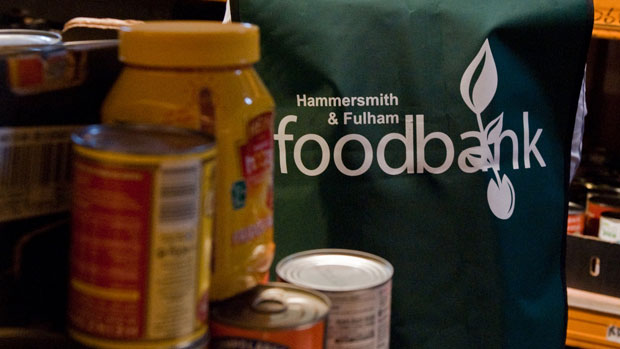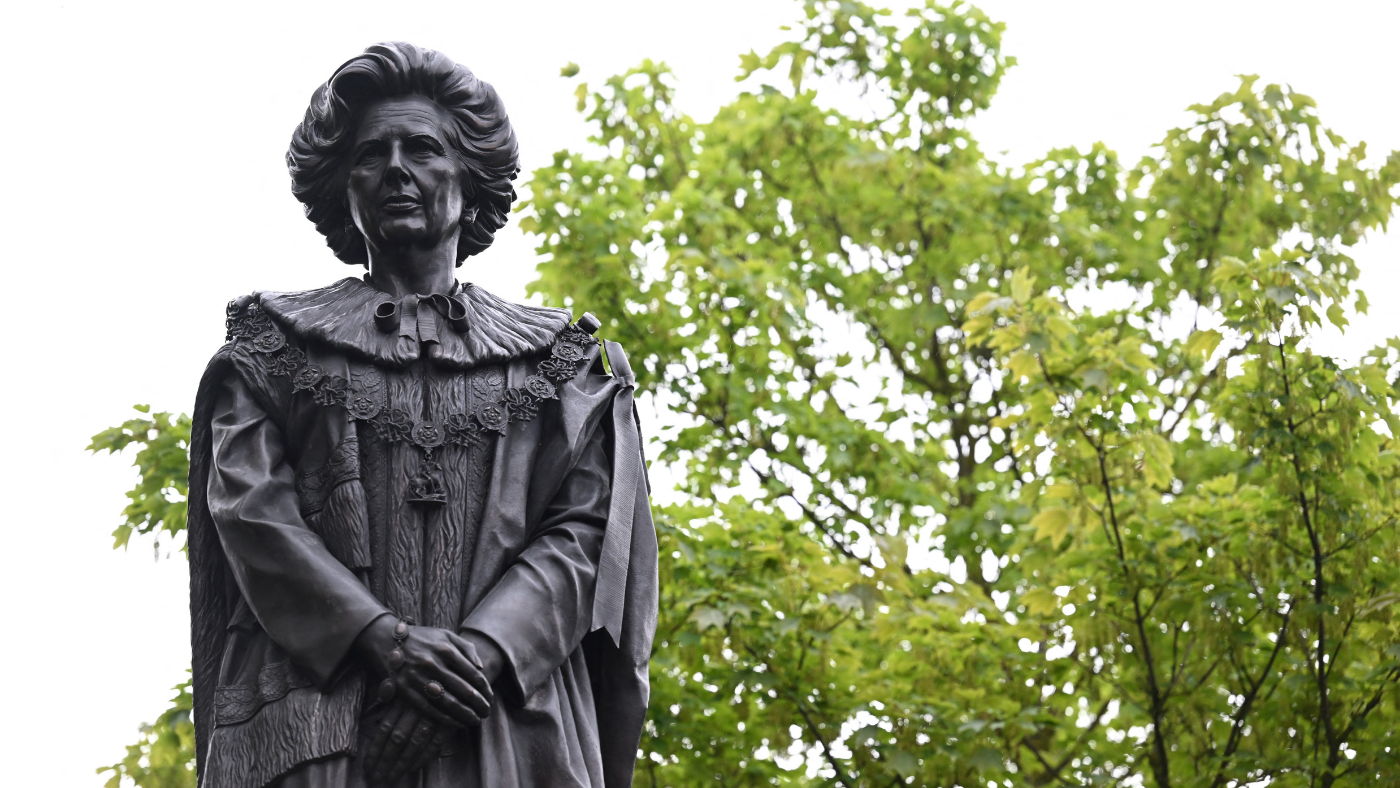Church calls for action on national food poverty 'crisis'
Number of people receiving food parcels almost tripled last year, but ministers deny benefits cut link

A free daily email with the biggest news stories of the day – and the best features from TheWeek.com
You are now subscribed
Your newsletter sign-up was successful
CHURCH leaders have called on politicians from all parties to tackle a "national crisis" of rising hunger in the UK after the number of people receiving food parcels almost tripled last year.
More than 40 Anglican bishops and 600 church leaders have signed a letter that calls for action to tackle the causes of food poverty, including low wages, rising food prices and an inadequate welfare benefit safety net.
The letter urges David Cameron, Nick Clegg and Ed Miliband to support the findings of a newly created all-party parliamentary inquiry into the causes of food poverty and urged society to "begin rising to the challenge of this national crisis".
The Week
Escape your echo chamber. Get the facts behind the news, plus analysis from multiple perspectives.

Sign up for The Week's Free Newsletters
From our morning news briefing to a weekly Good News Newsletter, get the best of The Week delivered directly to your inbox.
From our morning news briefing to a weekly Good News Newsletter, get the best of The Week delivered directly to your inbox.
Data released by the Trussell Trust, the UK's biggest food bank network, reveals that more than 900,000 people, including more than 330,000 children, received food parcels in 2013-14, a 163 per cent increase from the previous year.
The trust says its figures represent "just the tip of the iceberg" of food poverty, as they do not include the thousands of other people helped by non-Trussell food banks, as well as people who have no access to help or who are too ashamed to turn to charity food. More than half of its food parcels are going to people facing welfare cuts or delays in benefit payments, it says.
However, ministers have repeatedly denied any link between cuts to benefits and the "explosion" in food bank use, says The Guardian.
A Department for Work and Pensions spokesperson claims the Trussell figures are potentially misleading because it is unclear whether they have double-counted people who have made repeat visits to food banks.
A free daily email with the biggest news stories of the day – and the best features from TheWeek.com
"We're spending £94bn a year on working-age benefits so that the welfare system provides a safety net to millions of people who are on low incomes or unemployed so they can meet their basic needs," says the DWP.
"The truth is that the employment rate is the highest it's been for five years and our reforms will improve the lives of some of the poorest families in our communities by promoting work and helping people to lift themselves out of poverty."
-
 The environmental cost of GLP-1s
The environmental cost of GLP-1sThe explainer Producing the drugs is a dirty process
-
 Greenland’s capital becomes ground zero for the country’s diplomatic straits
Greenland’s capital becomes ground zero for the country’s diplomatic straitsIN THE SPOTLIGHT A flurry of new consular activity in Nuuk shows how important Greenland has become to Europeans’ anxiety about American imperialism
-
 ‘This is something that happens all too often’
‘This is something that happens all too often’Instant Opinion Opinion, comment and editorials of the day
-
 ‘Was a new statue of Thatcher really a wise idea?’
‘Was a new statue of Thatcher really a wise idea?’Instant Opinion Your digest of analysis from the British and international press
-
 Home Office worker accused of spiking mistress’s drink with abortion drug
Home Office worker accused of spiking mistress’s drink with abortion drugSpeed Read Darren Burke had failed to convince his girlfriend to terminate pregnancy
-
 In hock to Moscow: exploring Germany’s woeful energy policy
In hock to Moscow: exploring Germany’s woeful energy policySpeed Read Don’t expect Berlin to wean itself off Russian gas any time soon
-
 Were Covid restrictions dropped too soon?
Were Covid restrictions dropped too soon?Speed Read ‘Living with Covid’ is already proving problematic – just look at the travel chaos this week
-
 Inclusive Britain: a new strategy for tackling racism in the UK
Inclusive Britain: a new strategy for tackling racism in the UKSpeed Read Government has revealed action plan setting out 74 steps that ministers will take
-
 Sandy Hook families vs. Remington: a small victory over the gunmakers
Sandy Hook families vs. Remington: a small victory over the gunmakersSpeed Read Last week the families settled a lawsuit for $73m against the manufacturer
-
 Farmers vs. walkers: the battle over ‘Britain’s green and pleasant land’
Farmers vs. walkers: the battle over ‘Britain’s green and pleasant land’Speed Read Updated Countryside Code tells farmers: ‘be nice, say hello, share the space’
-
 Motherhood: why are we putting it off?
Motherhood: why are we putting it off?Speed Read Stats show around 50% of women in England and Wales now don’t have children by 30